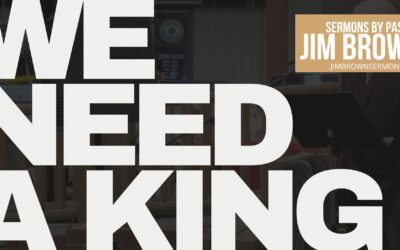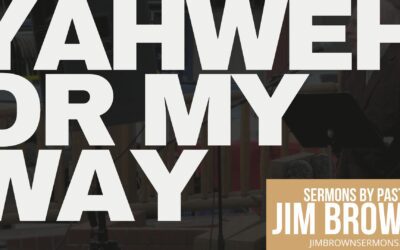JANUARY 31, 2025
EP 11: PROMISES PROMISES PROMISES | Discovering God’s Faithfulness
Genesis 12-20
Life changes when we step away from our own plans and lean into God’s faithfulness. In Abraham’s journey through Genesis, we see how walking with God leads to freedom, hope, and trust amidst life’s challenges. Dive in and discover how these timeless truths can inspire your faith journey today!
Sermon Study Resources
Sermon Notes
Your Subtitle Goes Here
Sermon Notes: Promises Promises Promises | Discovering God’s Faithfulness
Main Scripture: Genesis 12–20
Speaker: Pastor Jim Brown
Focus: God’s faithfulness
Introduction: Trusting in God’s Faithfulness
- God’s Word is timeless, relevant, and rooted in His unchanging nature.
- The human heart and God’s heart were designed to be in harmony. When they align, there is true freedom in Christ.
Part 1: God’s Promises to Abraham
Scripture: Genesis 12:1
- God’s covenant with Abraham begins with an invitation:
“Leave your country, your relatives, and your father’s family, and go to the land that I will show you.”
- Key Promises to Abraham:
- He will become the father of a great nation.
- His name will be great, and all the world will be blessed through him.
- God promises divine protection: “Those who bless you will be blessed, and those who curse you will be cursed.”
- Faith Journey Insight: Abraham’s journey began with a step of obedience, a demonstration of walking by faith.
Part 2: Faith Tested and Strengthened
Scripture: Genesis 14:23 & Genesis 15:6
- God’s faithfulness remained constant, even when Abraham faltered.
- Abraham’s faith grew as he trusted God’s provision, letting Lot choose the “better” land (Genesis 13).
- When Lot was captured, Abraham showed faith in action, rescuing him with a small army and refusing any rewards to ensure God received the glory (Genesis 14:23).
- Key Verse:
“And Abram believed the Lord, and the Lord counted him as righteous because of his faith.” (Genesis 15:6)
Part 3: Human Reasoning vs. God’s Plan
Scripture: Genesis 16
- Sarah and Abraham took matters into their own hands, introducing Hagar into God’s promise.
- Lessons on Faith:
- God’s timing often requires waiting.
- Walking with God means trusting Him, even when His plans seem delayed.
- Key Takeaway: Human reasoning leads to disunity, but God’s faithfulness endures.
Part 4: God’s Covenant and Grace
Scripture: Genesis 17 & Genesis 18:14
- God reaffirmed His covenant, declaring Abraham righteous and promising that Sarah would bear a son.
- Key Verse:
“Is anything too hard for the Lord? I will return about this time next year, and Sarah will have a son.” (Genesis 18:14)
- Abraham laughed in awe and amazement, showcasing his personal relationship with God.
Part 5: Faith, Judgment, and Holiness
Scripture: Genesis 19 & Genesis 20
- God’s grace and judgment coexist:
- He destroyed Sodom for its depravity while rescuing Lot and his family.
- Despite Abraham’s repeated failures (e.g., lying about Sarah being his sister), God remained faithful.
- Key Insight: Faith is a process of learning to trust God and live according to His promises.
Part 6: Jesus and the New Covenant
Scriptures: Luke 22:42, Matthew 27:46, Genesis 3:17–19
- Abraham’s covenant points to the new covenant through Jesus Christ.
- Jesus bore the curse of sin (thorns, pain, and separation) so that we could experience freedom in Christ.
- Key Verses:
-
“Father, if you are willing, take this cup from me; yet not my will, but yours be done.” (Luke 22:42)
-
“My God, my God, why have you forsaken me?” (Matthew 27:46)
-
Part 7: Living by Faith Today
Scripture: Ephesians 4:24
- Walking by faith involves embracing your new nature in Christ:
“Put on your new nature, created to be like God—truly righteous and holy.”
- Faith is not about perfection but about repentance and dependence on God.
Key Takeaways for Your Faith Journey
- God’s faithfulness remains steadfast, even when we falter.
- Trust God’s timing, even when life feels uncertain.
- Walking with God brings true freedom, not frustration.
- God’s grace invites us into a personal relationship, not a performance-based religion.
- Through Jesus, we are delivered from sin and invited into the new covenant.
Practical Applications
- Reflect on Genesis 12–20 and identify areas where you need to trust God more.
- Spend time in prayer, asking for guidance and thanking God for His faithfulness.
- Take a step of obedience in your own faith journey.
Bible Verses
Your Subtitle Goes Here
Bible Verses
Genesis 12:1 (NLT)
“The Lord had said to Abram, ‘Leave your native country, your relatives, and your father’s family, and go to the land that I will show you.'”
Genesis 14:23 (NLT)
“I will not take so much as a single thread or sandal thong from what belongs to you. Otherwise, you might say, ‘I am the one who made Abram rich.'”
Genesis 15:6 (NLT)
“And Abram believed the Lord, and the Lord counted him as righteous because of his faith.”
Genesis 18:14 (NLT)
“Is anything too hard for the Lord? I will return about this time next year, and Sarah will have a son.”
Genesis 3:17-19 (NLT) (Referenced during the discussion of the curse)
“Since you listened to your wife and ate from the tree whose fruit I commanded you not to eat, the ground is cursed because of you. All your life you will struggle to scratch a living from it. It will grow thorns and thistles for you, though you will eat of its grains. By the sweat of your brow will you have food to eat until you return to the ground from which you were made. For you were made from dust, and to dust you will return.”
Ephesians 4:24 (NLT)
“Put on your new nature, created to be like God—truly righteous and holy.”
1 John 5:11-12 (NLT)
“And this is what God has testified: He has given us eternal life, and this life is in his Son. Whoever has the Son has life; whoever does not have God’s Son does not have life.”
Luke 22:42 (NLT) (Referenced during the Garden of Gethsemane discussion)
“‘Father, if you are willing, please take this cup of suffering away from me. Yet I want your will to be done, not mine.'”
Matthew 27:46 (NLT) (Referenced during Jesus’ words on the cross)
“At about three o’clock, Jesus called out with a loud voice, ‘Eli, Eli, lema sabachthani?’ which means ‘My God, my God, why have you abandoned me?'”
Sermon Slides
Your Subtitle Goes Here




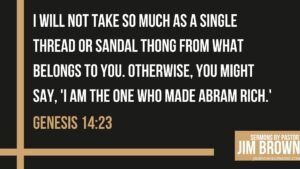



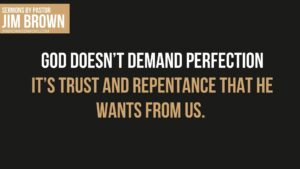
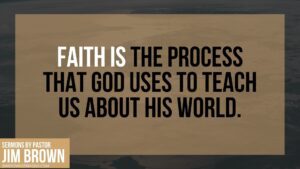











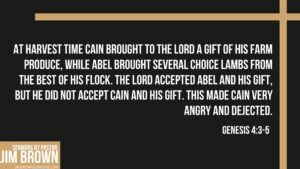

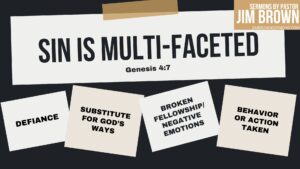


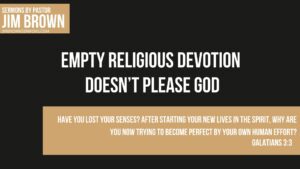


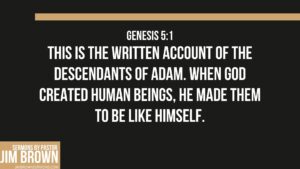
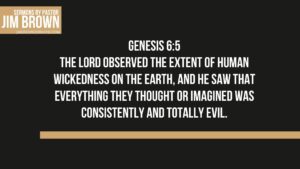
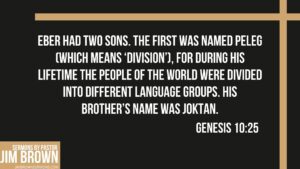



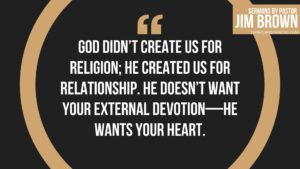



Related Song List
Your Subtitle Goes Here
Recommended Resources
Your Subtitle Goes Here
Books:
Abraham: A Journey to the Heart of Three Faiths by Bruce Feiler
- This book explores the life of Abraham and his significance in Judaism, Christianity, and Islam, providing a comprehensive look at his faith journey.
Abraham: One Nomad’s Amazing Journey of Faith by Charles R. Swindoll
- Charles Swindoll delves into Abraham’s life, highlighting his faith and the challenges he faced, offering insights into trusting God’s promises.
Abraham: Following God’s Promise by Michael Grigoni, Miles Custis, Douglas Mangum, and Matthew M. Whitehead
- This study guide examines Abraham’s journey, emphasizing the covenant promises and his faith in God’s guidance.
Articles and Blog Posts:
Abraham’s Journey of Faith Begins: A Study of Genesis 12 and 13
- This article provides an in-depth look at the beginnings of Abraham’s faith journey, focusing on his call and initial steps of obedience.
The Faith of Abraham | Genesis 12:10-20 | Abram and Sarai in Egypt
- An exploration of Abraham’s challenges in Egypt and the lessons on faith and trust in God’s promises.
Videos:
When Faith Gives Way to Fear by In Touch Ministries
- Dr. Charles Stanley examines a time when Abraham lost sight of God’s promise and took matters into his own hands, teaching why trusting God is always the best option.
Abram’s Journey to Egypt – Genesis 12:10-20
- A sermon that delves into Abraham’s journey to Egypt, discussing the trials he faced and the faith he exhibited.Watch the video here
Sermon Transcript
Your Subtitle Goes Here
Transcript: Promises, Promises, Promises | Discovering God’s Faithfulness
We thank you for your word, and we thank you for the relevance of something that can be very ancient because there’s some things that never change, and that is the human heart and your heart and Lord, that when they are together, Lord, there truly is the sunk victory in Jesus is on my mind. There truly is victory in life, victory in Jesus. There is something worth living for as we draw close to you and Lord, as we’ve seen through Genesis one through 11, and we will continue to see throughout scripture that whenever we do it on our own, whenever we determine we want to live separate from you, it doesn’t work.
So we thank you for your instruction to us to draw close and in drawing close, there’s true freedom in Christ. Amen. So, so far, God has shown us over and over again that he is the God of new beginnings getting to start over again, which is a good thing. But people feel very fortunate. They do in many cases. But there’s another thing that happens that we need to understand is that God has remained firm. He hasn’t changed. He never will change that He is the sovereign ruler of the universe, whether we like it or not, whether we cooperate with it or not. He is the sovereign ruler. While mankind has demonstrated over and over and over again, he’s incapable of ruling even himself. We just cannot maintain control. You’ve probably heard it said that if something sounds too good to be true, it probably is, or you’d never get something for nothing or my thing, they always go, what’s the catch? Somebody’s offering you something. What’s the catch? Well, in Genesis 12, that’s what we’re moving into now with the life of Abraham. And it starts right off the bat with a promise. The promise of being a great nation. That’s what he says to Abraham, you will be the father of a great nation. You will have a great name, your offspring. It’s too much to count.
You live in the land of Canaan, which was a very rich piece of property that the whole world will be blessed through you. So those who bless you will be blessed and those who curse you will be cursed. And then also God was giving him divine protection. So most covenants at that time and even today are conditional. So this one’s a little different. It’s unconditional, but why is it different? I’d say, well, what’s the catch? Well, Genesis 12, one says what the catch is. Then the Lord told Abram, leave your country, leave your relatives and your father’s house and go to the land that I will show you.
See, the idea that he left this country is not so much of a condition as it’s an invitation. God is inviting him to see where he is working and to join him there. The promise is his. All those things would be his. As soon as he leaves, he’s got to get started. It’s sort of like when this summer we invited our moms out and said, moms, well buy the airplane tickets out here, but you got to get in the plane. And that’s not easy for people in their eighties. They just don’t want to always fly around, but they did. And so we had a great time and we never would’ve experienced that. And they’re still talking about it and showing the pictures to everybody back in Chicago. Why? Because they left.
They took us up on the promise. Well, there were postponements for Abraham and the people of Israel when it comes to this promise. They didn’t realize all the promises right away. Sometimes it was due to a lack of faith. Oftentimes it was due to the lack of faith. But God was always Abraham’s protector. Even when he messed up in chapter 12, Abraham went and he said to one of the kings that his wife, Sarah was actually his sister. He did that to protect himself. He figured, well, if they know that this is my wife, they’re just going to kill me and take her anyway, so I’ll just say it’s my sister and give her to them. Good plan. So God had just finished telling him, I will protect you. But no, he relied on his own understanding and looked for ways to protect himself. And God bailed him out.
And even when he is struggling along, God continues to remind him throughout the rest of Genesis that he is his protector, that he is there and he’ll take care of him. In chapter 13, Abraham’s faith is strengthened. He realizes that God will provide for him. And as he takes off with his family for lands he doesn’t know, he says to his nephew, lot, you pick the property you want. I trust God’s going to take care of me no matter where I’m at, you go ahead and pick it out. So lot picked out what he thought was the richest, the greenest, the best property there is, and went to settle there and Abraham went on. But see, that was an act of faith on Abraham’s part, knowing that God was going to take care of him and that Abraham could not give away that promise that God will take care of him.
And then as it turns out, lot gets taken captive, held hostage, and Abraham takes his little army of men, about three guys or so and goes and rescues him, beats up a bunch of kings and rescues some other kings in the process. And one of the kings says He wants to give Abraham a reward and listen to the faith of Abraham for this. In Genesis 14, verse 23, it’s a key verse. He says, I will not take so much as a single thread or a sandal throng from you, otherwise you might say that I am the one who made Abraham rich. See, he wanted those around him to know who his God was and that His God was the one who took care of him. And in chapter 15, God appears to Abraham in a vision in response to that faith that he just showed, just show that he really wanted Abraham to trust him. And he makes a contract with him, a covenant, and he goes through a procedure that was very popular in those days. And as they go through this covenant, God binds himself irrevocably to the promise and says, I am going to make due and this covenant is sealed that I will. And the funny thing about the covenant is there’s nothing on Abraham’s part to fulfill. There’s only something on God’s part. No conditions on Abraham were necessary. Failure or unbelief, lying, stealing, cheating, nothing on Abraham’s part would break the contract.
So that’s where a covenant with God is different. He fulfills. He doesn’t have something to gain out of the contract. He’s the giver. Abraham’s the passive one. Nothing to gain at all from the deal. So what happens then? Well, we see in verse 15, six, another key verse, and Abraham believed the Lord and the Lord declared him righteous because of his faith. So when we think of righteousness, we’ve talked about this for the last year. Quite often we’ve touched on this topic of righteousness. We always think it’s a matter of behavior and God’s saying, no, it’s a matter of faith. If you have faith, you are declared righteous. You don’t have to measure up to a standard that God accepts us just the way we are. It’s not a performance issue before God to be righteous. It’s a matter of trusting God, believing in God, and understanding his promise to us and living according to that promise.
So even though God’s word is really clear to Abram, now he’s come to him in a vision. He’s made the contract with him. He’s declared his righteousness. Well, just like with Adam, just like with Kane, just like with Noah and scores of others wouldn’t, his finite thinking kicks in, human reasoning takes over and they determine an alternate route from faith. They want to try something else to fulfill the promise. So we call that plan B, go for plan B, see what happens. And in chapter 16, Sarah, his wife, comes up with this brilliant idea to help God out because he’s not moving along too quickly on this promise. She suggests that her servant be her substitute to overcome her bareness in order to fulfill the promise. Well, it may have seemed like a good idea, just like there’s a lot of good ideas that seem like they’re good ideas today.
Talked to several people about this recently, how the interest only payments that people can make today. And how I had somebody tell me now it can work for somebody’s benefit if you know what you’re doing. But I had a guy tell me that no, he was going to go into this because property’s gone up 40% in the last five years. So in 10 years, just think how much it’s going to go up and he’s going to have this piece of property that’s going to have all this value that he’ll be able to refinance with all this equity. So he’s just really determined and it sounds like all this good logical stuff. Well, that’s what was happening with Abraham, that he was just looking at the society around him and what they were doing and saying, this makes a lot of sense. This is the way life goes about.
If your wife doesn’t have a kid, have one of the servants have the kid for him, and that’ll do well. That’s not God’s intended way, and he needs to step in again because all kinds of tension and disunity resulted from this idea and for many generations they’re going to pay for it. In fact, Ishmael, who is the child from that servant girl is the father of the Arab nations. So from that point on, there’s been issues, all kinds of tension, all kinds of disunity. But even in that failure, God takes over and protects Abraham. And then 13 years later after this, do it yourself promise, fulfillment, deal. God says in chapter 17 to Abraham, who is now 99 years old, his wife Sarah is 10 years younger than him. He says, I’m going to give you guys some new names. He institutes circumcision and he announces that Sarah’s going to have a child. She’s going to become the mother of nations and of kings. See Abraham? He’s speaking to Abraham at this time, and Abraham is just awestruck. He’s really amused by this. He doesn’t know what to do. He falls down on his face before God.
But you know what he is doing while he’s down there, he starts laughing. Could you imagine that he’s got a personal relationship with God as incredible as this is, and he’s just awestruck by it and he falls on his face before God. He’s laughing. He’s saying, God, I can’t believe this, that this is actually happening in my old age. See, up to this point, we’ve seen God is a very personal God and with Abraham, he’s taking him along like a father, just trying to teach him what it means to live by faith. He’s almost like he’s parenting him, but we have to remember that’s God’s grace towards us too. He wants to parent us. He wants to be that close to us. He wants us to be able to laugh in his presence and to fall down in awe in his presence together and relate to us very personally.
We have to remember also that along with that grace and that love of God, there’s also judgment. There’s that side of him too, and we can’t neglect that. And there’s a balance between grace and judgment and the character of God, and that’s still the case as we move through and see in chapters 18 and 19, that God is the sovereign judge. He rebukes Abe and Sarah for their unbelief because they just didn’t think he could really give them a son, especially Sarah. And then the key verse of that is 1814 is anything too hard for the Lord?
He says, is anything too hard for the Lord about a year from now, just as I told you, I will return and Sarah will have a son. That’s a good question, isn’t it? Is there anything too hard for God? Is there anything too hard for the Lord? Think about your week, your past week. Is there anything that seems too hard for God? Maybe it’s coming up, all the unknowns coming up this week, this month. Is anything too hard for God? Have you taken matters into your own hands? Maybe? Have you in the sinking sand, have you played all the angles trying to make it work? It’s just not working. Is anything too hard for God? That’s a good question to keep in your mind. Mull that over. Is anything too hard for God? Just try to think of things that you’ve been experiencing and fit them into it.
See God’s blessing and fulfillment of his promises at hand for Abraham and his family while his justice is still being demanded for those who don’t take God seriously. So the Lord and Abraham, they have a little discussion on some really more serious matters about Sodom, the city of Sodom and the surrounding cities seems they’ve reached a high point in depravity and just with the Tower of Babel, just like it happened back then. God says, I’m going to go down and check things out. He says that in 1821, I’m going to go down and check things out there in Sodom and Gomorrah and see what’s going on. The injustice and moral decline were confirmed and God destroyed the city, and do you believe it? Right after that in chapter 20, Abraham moves into another embarrassing scene lying about his sister, his wife. Again, he’s trying to protect himself.
He’s afraid he’s going to get killed if they understand it’s his wife, and he goes through, did you ever in aa, they say that they’ve drummed this into you. The definition of insanity is doing the same thing over and over again expecting different results. Well, that’s sort of what Abraham’s experiencing here. It didn’t work the first time, but he tries it again, trying to see if maybe he’ll get different results. And once again, God moves in to protect him. What’s interesting here is what God’s trying to say is it’s not perfection that God demand of us now, it’s repentance. It’s coming to him. It’s trusting him, acknowledging when we’ve gone wrong and letting him bail us out instead of trying to make things work on our own all the time. Faith is the process that God uses to teach us about his world.
If you want to learn about God, it’s going to be a life of faith, of trusting, of believing him for what He says. It’s not going to be something that you can read in a book and say, I know all about God. You only know about God as your provider when you allow him to provide for you. You only know about God as being your comforter. When you allow him to comfort you. You’ll only allow God to be the Lord when he’s really Lord of your life and gives you personal direction. You see, it’s trusting him in steps of faith. That’s how you learn about God’s world. But Godlessness is not tolerated by God and it will be punished, maybe not right away, but it’s going to happen. Self-sufficiency, empty religious devotion, mere lip service towards God, all those things will experience the effect of the curse and separation from God.
See, there’s no room for do it yourselfers in God’s kingdom. He’s not saying that you can’t have things your way. Go ahead, go to Burger King, have things your way, but you’ll pay the penalty and you won’t be able to hold up to all the responsibilities of having things your way. You’ll crack under the pressure. We live in a society today where anger, anxiety, and depression are out of control. Why? Because everybody wants things their way and we were never designed to be able to have things our way. It’s God’s way or the highway. It just won’t work. But within doing things God’s way, there’s freedom.
There’s freedom to live, freedom to enjoy life, freedom to enjoy our God, freedom to enjoy one another. See, there’s a line clearly being drawn in scripture as we work our way through Genesis saying God wants to interact with his people, but at the same time he’s separate. He’s holy from sin. He cannot tolerate sin in his presence. But then he said, by faith with Abraham, Abraham was made righteous. He was made holy and faith bridges the gap between our sin and the holiness of our loving God. In Ephesians 4 24, it says that you must display a new nature because you are a new person created in God’s likeness, righteous, holy, and true. It’s saying that those of us who are children of God are holy, righteous and true by nature. So we must display that nature. It doesn’t say you need to act like it. It’s not an act that you put on. No, it’s a display of something that’s coming natural to you. Just like a dog displays the nature of a dog because he is a dog. Well, as children of God, we display the nature of being a child of God because it should be natural to us. I’m separate from the values of this decaying culture because I am already holy from this decaying culture. I am separated from it. The sin of this culture is not my home.
See, we can’t reach this community for Christ by trying to be like them. Now what found that out the hard way and Sodom, he tried to be like his culture and he did not reach them. No, we are called to be like Christ and God will reach those who are seeking him through us. So we find ourselves in a very similar culture, just like throughout history, just like in Genesis, just like what Abraham was facing, where people can’t really find God for the same reason that a criminal can’t find a cop, really not all that interested in finding him.
Are you interested in finding God, really finding him? Or you want to just kind of stay aloof there and hope you’re not noticed so you can do what you want to do? There’s a lost and dying world. It needs to see how much we’re like Christ, not like them. We need to show them Christ. Not a bunch of religion. Too often Christians are looking for some sort of personal forgiveness from God, a ticket to heaven, but they’re going to deny its deliverance from the corrupt culture we live in. Deny the deliverance from sin. See, we’ve cheapened the seriousness of sin and we invent ways to try to do what we want to do to kind of play around with it. Many people who claim they follow Christ aren’t fathered by all the sexually explicit images that are in advertising and media and all this stuff that’s being pumped into our minds, and you’ll see that even in a casual reading of Genesis.
You don’t have to be a scholar. Just a casual reading of Genesis will show you that obscenity is nothing new and that God never tolerated it. Then why should he tolerate it? Now, why should things be any different? How can those who say that they’ve grown used to it or are they really growing used to just feeding our self-indulgent appetites? God says that those who want to chase after that, he’ll just turn ’em over to a depraved mind. Sin has been, and it always will be, the dividing factor between God and man, Jesus suffered on the cross to pay the penalty for our sin to make us righteous. That’s what it’s all about. It’s so that we can live righteously, not play around with sin. We’re not here to flirt with it, but to live the way Christ showed us to live.
See, the people in Israel often forgot that throughout the Old Testament, I mean already Abraham, after seeing God work in his life so clearly forgot it and went after his own ways. We do the same thing. We forget moment by moment, day after day of God’s goodness. God’s promises, God’s love for us. Communion is what reminds us, isn’t it? Isn’t that what God says? It’s a reminder. There’s nothing special about it in the fact that it doesn’t cleanse us taking communion, but it reminds us that Jesus has, that we are new creations in Christ. We are the recipients of a new promise from God. One John five 11 and 12 says this, and this is what God has testified, that he has given us eternal life.
This life is in his son, so whoever has God’s son has the life, and whoever does not have the Son of God doesn’t has the life. It’s all wrapped up in Jesus. It’s all wrapped up in him. To have the life of Christ is to have the presence of God in your life, to have it restored to us that was taken away during the curse. It’s to put our faith back in God and know that we are in close relationship with him. We’re delivered from the kingdom of darkness. We no longer have to live according to the ways of the kingdom of darkness. So when we come to the cross, we see Jesus and we see that he endured everything that was a part of the original curse of man. God said to Adam back in Genesis, Genesis three, that there would be thorns. The Roman soldiers mocked Jesus and they placed a crown of thorns on his head and they beat those thorns into his skull.
The curse said that there would be sweat and in the garden, Jesus sweat blood. The third curse was that of pain. Nobody has suffered more pain than Jesus. The Lamb of God has suffered for us. He also said that there’d be enmity. There’d be warring between Satan and Adam and Adam’s offspring, and by the last Adam, Jesus Christ. He also went to war with Christ. You know the two greatest battles for the human will, okay? The two greatest battles for the human will were fought in a garden. Think about that. The first one was in the Garden of Eden, have it your way. Second one was in the garden of Gethsemane when Jesus said, father, if you are willing, take this away from me. Take this cup of suffering away, but I want your will not mine. The battle for the will was won in the garden of Gethsemane.
I’m sure Adam listened very carefully as God listed off the curses, but the last one was the one. I bet you he just hung on when God told him that he wouldn’t walk with Adam anymore. I believe Adam would’ve been begging God at that point saying, God, I can take the pain. I can take the sweat, but don’t separate yourself from me. We’ve been so close. I want to be close again. Even Cain recognized this when he replied to the Lord, my punishment is too great for me. After he murdered his brother, he said, your punishment is too great for me. I’m going to be banished from my land and from your presence. The last curse of separation also came to Jesus on the cross with agonizing words. He called out, my God, my God, why have you forsaken me? Every curse laid on mankind was born in Jesus.
He was forsaken so that we wouldn’t have to be so we’re here able to come to him, our sins forgiven, washed, clean, declared righteous, not based on our works, but on the works of Jesus Christ. So towards sin is to be indifferent towards the price that Christ paid for us. He’s paid for your freedom. It’s a rejection of that invitation to the new life. We’re going to take communion, and for those of you who are visiting today, this is for those who declare Jesus Christ as their Lord. It’s open to anybody. You don’t have to be a member of this church, just a member of the body of Christ who identify themselves with Jesus. Remember, God’s not looking for perfection, a perfect life. As we take this, what he’s looking for is repentance, just turning to him. This isn’t a time to see and ask yourself, boy, am I worthy of all this? God, it’s a time to say, God, I’m not worthy of all this. If you know you aren’t worthy to receive communion, then you’re ready. If you know that you aren’t worthy to come into the presence of God on your own, you’re ready. So keep that in mind as we pass the elements.
There’s power in the blood power to overcome our self-indulgence, power to cleanse us from our sin power to live the victorious life in Christ, power to have meaning in life power to understand the new covenant in Christ, that God has made an irrevocable covenant with us to forgive our sins. He sealed it with his blood and he said, take this and do it in remembrance of me. Let’s pray. Heavenly Father, we thank you for this opportunity. We have to remember and that Lord, along with it, there’s no guilt. There’s no shame, there’s no condemnation for those who are in Christ Jesus, that we can come to the throne boldly in your presence, not based on the deeds we have done, but based on the fact that you’ve made a promise to us to never leave us or forsake us to those that you call your own. We love you, Lord. We pray that this week we’ll remember as we face a culture that is hostile towards you, that nothing is too hard for the Lord. Amen.
Original Sermon Date: October 2, 2005
© 2025 Sermons by Pastor Jim Brown www.jimbrownsermons.com All rights reserved.
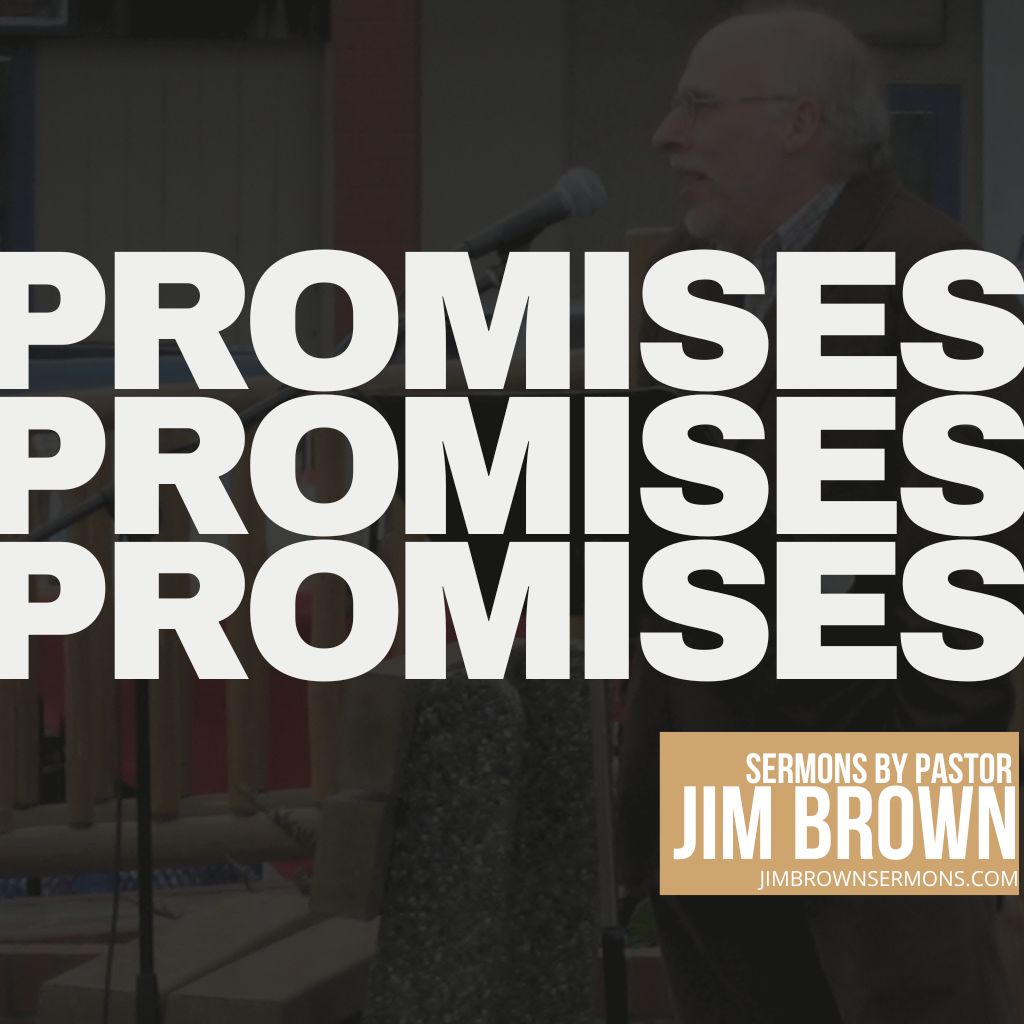
Promises, Promises, Promises | Discovering God’s Faithfulness
Genesis 12–20
Faith is often about stepping into the unknown. Abraham’s journey in Genesis reminds us that trusting God’s faithfulness can transform not only our lives but the lives of generations to come. This story isn’t just about promises; it’s about the God who makes and keeps them. Through Abraham’s faith journey, we see a powerful picture of what it means to walk with God, even when life’s challenges test our trust.
God’s Faithfulness: The Foundation of Every Promise
In Genesis 12, God invites Abraham into an extraordinary covenant. He promises to make Abraham the father of a great nation, to bless him and his descendants, and to bless the whole world through him. This promise is a testament to God’s faithfulness—a faithfulness that remains unshaken by time, circumstance, or human failure.
The covenant begins with an invitation, not a condition:
“Leave your native country, your relatives, and your father’s family, and go to the land that I will show you.” (Genesis 12:1)
Abraham’s journey required leaving behind the familiar and stepping into a future only God could see. This is the essence of walking by faith. It’s not about knowing every step of the path but trusting the One who leads.

Faith in Action: Trusting God in the Unknown
Faith isn’t just belief; it’s action. Abraham’s willingness to obey God’s call in Genesis 12 demonstrates the trust that marks the beginning of any true faith journey. He left everything familiar, not because he understood the plan but because he trusted God’s promises.
Faith in action is what transforms a promise into a reality. Abraham’s story reminds us that God often asks us to take the first step before revealing the destination. This truth is as relevant today as it was thousands of years ago. Whether we’re facing uncertain decisions, trusting God in hard times, or seeking clarity in our purpose, the first step is always to follow His lead.
When Human Reasoning Takes Over
Despite Abraham’s faith, moments of doubt crept in. In Genesis 16, we see Abraham and Sarah take matters into their own hands. Frustrated by God’s timing, they attempted to “help” God fulfill His promise by involving Hagar. The result was tension and disunity—a powerful reminder that walking with God means surrendering control, even when the waiting feels unbearable.
This misstep didn’t derail God’s plan. His promises aren’t dependent on our perfection. Instead, they reveal His grace and patience. Even when we falter, God’s faithfulness remains constant, guiding us back to His path.
God’s Covenant: A Promise Without Conditions
In Genesis 15, God reaffirmed His covenant with Abraham, binding Himself to His promises with no conditions placed on Abraham. This unconditional promise highlights a profound truth: God’s faithfulness doesn’t depend on our actions.
“And Abram believed the Lord, and the Lord counted him as righteous because of his faith.” (Genesis 15:6)
This verse underscores a central theme of Scripture: righteousness comes through faith, not performance. God isn’t looking for perfect behavior but for hearts that trust Him. This truth frees us from striving and invites us to rest in His unchanging promises.
The God of Grace and Judgment
As we follow Abraham’s journey, we see a balance between God’s grace and His judgment. In Genesis 18, God promises Sarah a son, even as He confronts her unbelief:
“Is anything too hard for the Lord? I will return about this time next year, and Sarah will have a son.” (Genesis 18:14)
Yet, just a chapter later, we see God’s judgment against Sodom and Gomorrah. The depravity of these cities had reached its peak, and God, in His holiness, could not let it continue. This balance reminds us that while God is full of grace, He is also just. Sin separates us from Him, but through faith, we are reconciled.
Faith Tested: Trusting God’s Timing
Even after God’s reaffirmation of His promise, Abraham’s journey wasn’t without challenges. In Genesis 20, Abraham repeated a mistake from his past, lying about Sarah being his sister to protect himself. This act of self-preservation revealed his ongoing struggle to fully trust God.
But God’s response wasn’t to abandon Abraham. Instead, He continued to protect and guide him, showing that faith is a process. Walking by faith doesn’t mean never stumbling; it means getting back up and trusting God to lead.
The New Covenant: God’s Faithfulness Fulfilled
Abraham’s covenant with God points us to a greater promise—the new covenant established through Jesus Christ. Just as God fulfilled every promise to Abraham, He fulfilled the ultimate promise of redemption through the cross.
In the Garden of Gethsemane, Jesus surrendered to the Father’s will, saying:
“Father, if you are willing, take this cup from me; yet not my will, but yours be done.” (Luke 22:42)
This moment marked the beginning of the ultimate act of faith and obedience. Jesus bore the full weight of humanity’s sin, taking on the curse that separated us from God:
“My God, my God, why have you forsaken me?” (Matthew 27:46)
Through Jesus’ sacrifice, we are invited into a relationship with God that bridges the gap between our sin and His holiness. This is the ultimate expression of God’s faithfulness.
Practical Lessons from Abraham’s Faith Journey
-
Trust God’s Timing
Abraham’s story reminds us that God’s promises are always fulfilled in His perfect timing. When we take matters into our own hands, we often create unnecessary challenges. -
Faith Requires Action
Just as Abraham left his homeland, we must be willing to take steps of faith, even when the outcome isn’t clear. -
God’s Grace Is Greater Than Our Failures
Abraham stumbled, but God’s faithfulness never wavered. Our mistakes don’t define us—our faith in God does. -
Walk with God Daily
Faith is not a one-time decision but a daily journey. As we walk with God, we learn to trust Him more deeply and experience His promises firsthand.
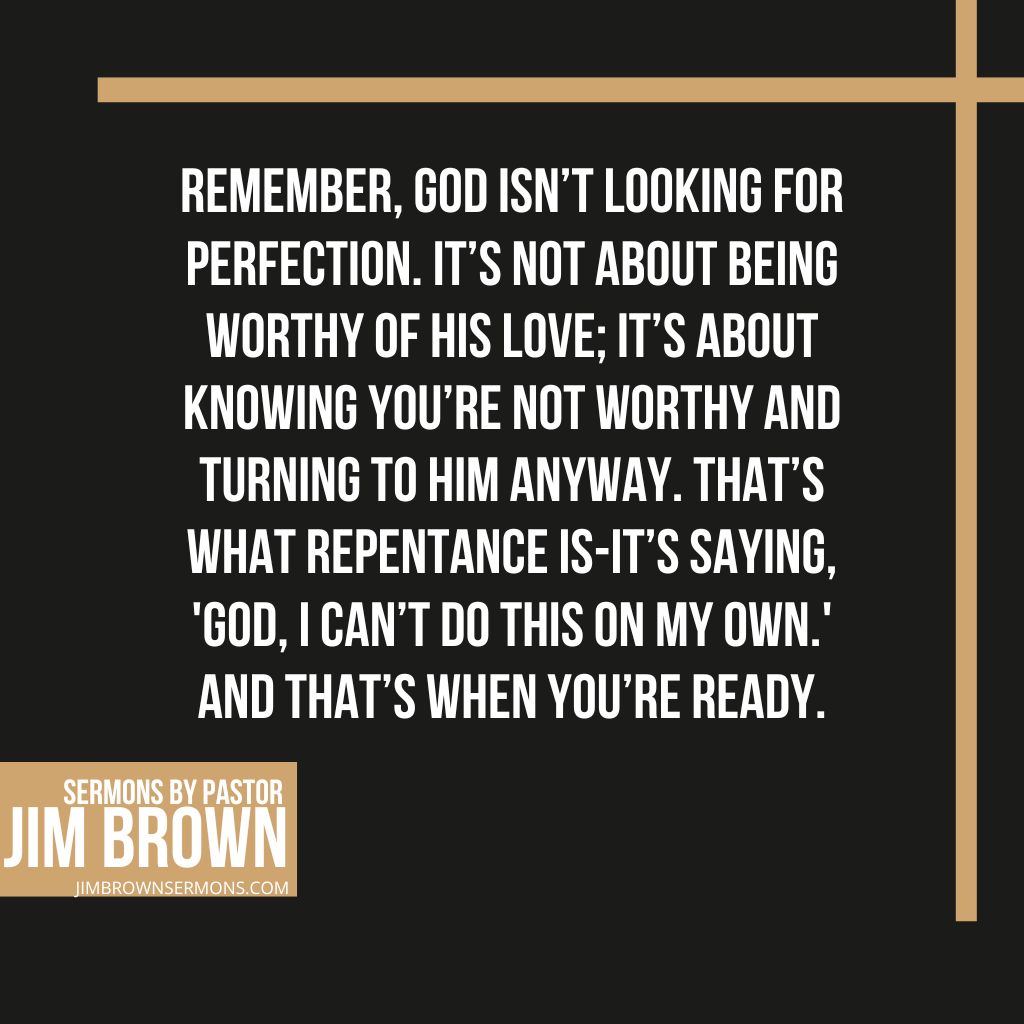
Walking by Faith Today
Abraham’s journey in Genesis is more than a historical account—it’s a roadmap for our own faith journey. Whether you’re facing uncertainty, struggling to trust God’s promises, or seeking a deeper relationship with Him, Abraham’s story offers timeless lessons on walking with God.
God’s faithfulness remains unshaken, even when our faith falters. His promises are true, His grace is sufficient, and His covenant of love invites us to live in freedom and hope.
Conclusion: Is Anything Too Hard for the Lord?
As you reflect on Abraham’s story, consider this question from Genesis 18:14:
“Is anything too hard for the Lord?”
The challenges you face may feel overwhelming, but God’s promises are bigger. Whether you’re seeking guidance, healing, or hope, remember that His faithfulness never fails.
If this message spoke to you, explore more Christian sermons online and tune in to our Christian podcasts for inspiration on faith and prayer, trusting God in hard times, and how to grow in faith.
Your faith journey starts here. Will you take the next step?
Original Sermon Date: October 2, 2005
© 2025 Sermons by Pastor Jim Brown www.jimbrownsermons.com All rights reserved.
RECENT SERMONS
Ep 18: THINKING BACK LOOKING AHEAD | God’s Love Never Fails
Find hope in the midst of uncertainty as this sermon reveals how God’s love, mercy, and faithfulness remain steady—even when life doesn’t go as planned.
EP 17: WE NEED A KING | Finding True Security in God
Feeling lost and insecure? True security in God comes from trusting Him completely. Learn how seeking God brings peace and strength.
EP 16: WHAT ARE YOU DOIN’?! | Trusting God’s Plan Changes Everything
When life feels uncertain, trusting God’s plan changes everything. See how His faithfulness, redemption, and promises lead to true victory in Christ.
EP 15: WHO’S NEXT | How to Truly Love God with All Your Heart
Loving God isn’t just a feeling—it’s a way of life. True love for God starts with action. It’s about trusting God fully, following His commandments, and surrendering your heart completely. Learn how to align your heart, mind, and actions with His commandments and grow in faith like never before.
EP 14: GOOD ENOUGH ISN’T GOOD ENOUGH | The Truth About a Relationship with God
Is ‘good enough’ really enough? A true relationship with God isn’t about rules—it’s about faith, obedience, and trust. Listen now to grow in Biblical faith!
EP 13: YAHWEH OR MY WAY | Lean Not On Your Own Understanding
Struggling to trust God’s plan? Learn how Yahweh leads us through trials, how to surrender to God, and why we must lean not on our own understanding.

